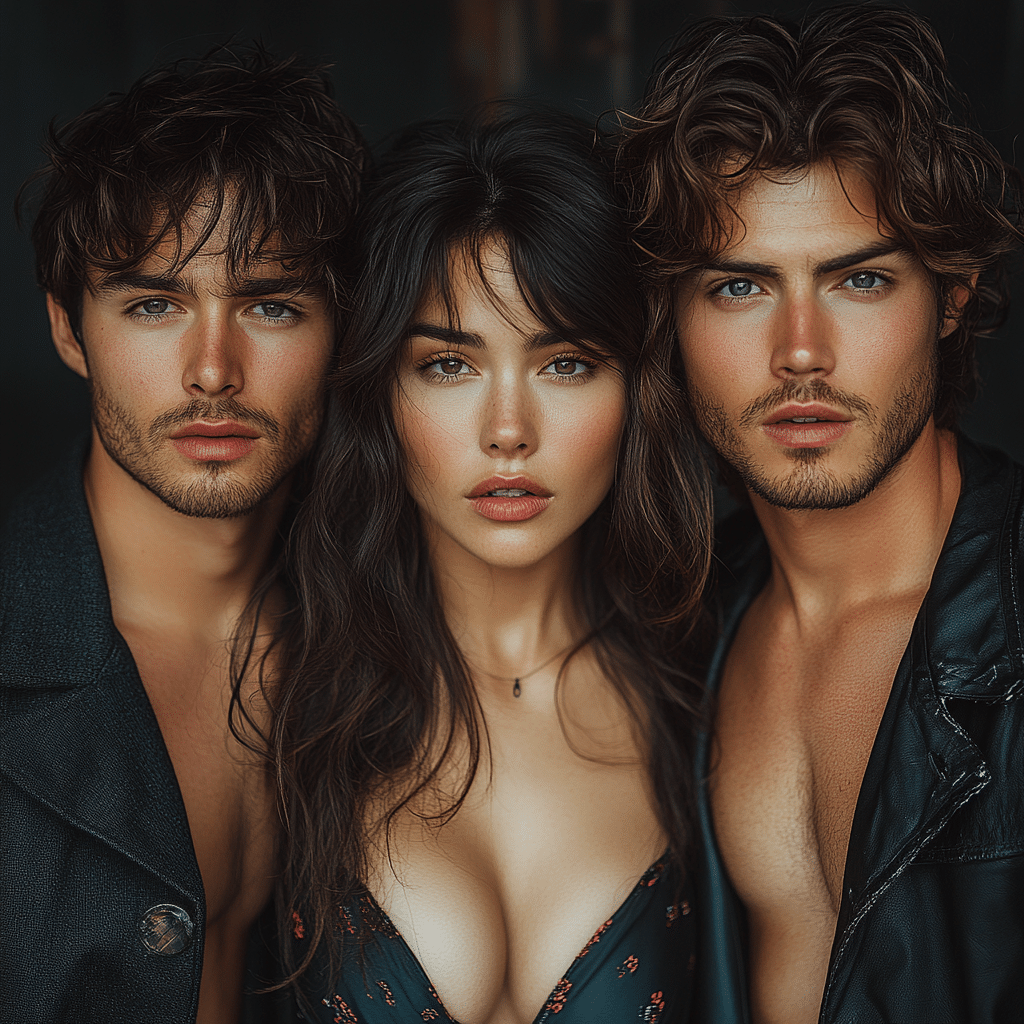When we delve into the world of cinema today, it’s hard not to feel the weight of yesterday’s timeless classics. These films, adored by generations, aren’t just movies—they’re a treasure trove of inspiration and emotion that shaped the storytelling landscape we revel in today. With every frame, every haunting score, and every powerful performance, they beckon us to revisit those golden moments. In this article, we’ll explore seven extraordinary films that have stood the test of time, illustrating their significance and how they continue to inspire our modern filmmaking journey.

7 Timeless Classics That Defined Yesterday’s Cinema
1. Casablanca (1942)
Ah, Casablanca—a film that transports us to a time of war, love, and sacrifice. With its iconic lines like “We’ll always have Paris,” this romantic drama isn’t just a staple in film history; it’s a blueprint for character-driven storytelling. The way it intertwines personal dilemmas with broader socio-political themes echoes through contemporary works like La La Land (2016). The nostalgic tug of yesterday feels strong as viewers realize how influential this classic remains in today’s romantic narratives.
2. Psycho (1960)
And then there’s Psycho, a name that sends shivers down spines and redefined the horror genre. Alfred Hitchcock’s masterclass in suspense introduced tropes we now take for granted: the ominous score, shocking plot twists, and character arcs that keep audiences at the edge of their seats. The infamous shower scene has inspired countless filmmakers, from Brian De Palma in Carrie (1976) to Ari Aster with Hereditary (2018). Yesterday’s impact reverberates even today in modern horrors that prioritize psychological tension.
3. The Godfather (1972)
The Godfather can almost be considered the Bible for many filmmakers. Francis Ford Coppola’s gangster epic revolutionized how we perceive crime narratives, showing the intricate web of family and power dynamics. Its profound influence can be traced in movies like The Irishman (2019) and even in contemporary TV dramas like Succession (2018). The film’s exploration of morality within the framework of family is a testament to its lasting legacy in yesterday’s cinematic impact—a narrative depth that feels relevant and essential today.
4. Star Wars (1977)
Who doesn’t love Star Wars? Not only did George Lucas’s space opera carve out a massive fanbase, but it also reinvented the realm of special effects and merchandising. Its legendary status opened the door for blockbuster franchises like the Marvel Cinematic Universe, showcasing that cinematic universes can thrive. With elements like the hero’s journey and intricate world-building, Star Wars set a precedent that resonates strongly in the fabric of today’s blockbuster filmmaking.
5. Jaws (1975)
Ah, Jaws—the film that taught us to fear what lurks beneath the surface. This remarkable piece by Steven Spielberg wasn’t just a thrilling watch; it was the catalyst for the summer blockbuster phenomenon. Its masterful storytelling and unforgettable score created a blueprint for thrilling cinema, influencing films like A Quiet Place (2018), which showcases tension built through sound or, rather, the lack of it. The innovation brought forth by yesterday continues to shape how suspense is constructed in today’s films.
6. Schindler’s List (1993)
Schindler’s List remains a sobering reminder of cinema’s power to incite empathy and awareness. Spielberg’s heartbreaking portrayal of World War II and the Holocaust showcases the narrative’s deep emotional impact. Its resonance can be felt in modern dramas, particularly biographical works like 12 Years a Slave (2013) and The Pianist (2002). This classic from yesterday has paved the way for filmmakers today to sensitively tackle difficult historical topics, urging us all to remember and learn from the past.
7. Pulp Fiction (1994)
Last but certainly not least, Pulp Fiction blew viewers away with its offbeat storytelling and eclectic dialogue. Quentin Tarantino’s creation changed how we approached narrative structure, showing audiences that timelines could twist and turn in unexpected ways. Its influence can be seen in many contemporary films, including Edgar Wright’s Baby Driver (2017). This cult classic birthed a new era of innovative, genre-fusing films—an excellent reminder of how yesterday’s creativity informs today’s cinematic landscape.

Reflecting on Yesterday’s Classics: The Enduring Legacy
Each of these films embodies the spirit of yesterday, threading together crucial themes that continue to resonate across generations. As we analyze their contributions, we uncover the shared human experiences of love, fear, resilience, and identity—a common language through which filmmakers communicate with audiences. By revisiting these classics, we not only honor their legacy but also gain vital insights into society’s evolving consciousness.
The enduring relevance of these masterpieces speaks volumes about their ability to transcend their own contexts, enchanting new audiences while remaining firmly rooted in the cinematic history. The extraordinary journeys of these films serve as beacons for today’s storytellers, reminding us that while trends may shift, universal themes are timeless. As we explore films from yesterday, we continue to see the imprint they leave on modern cinema, reinforcing the power of storytelling throughout the ages.
Yesterday: The Extraordinary Journey of a Timeless Classic
The Beatles’ Legacy
Did you know that “Yesterday” was inspired by a dream? Paul McCartney famously woke up with the melody in his head. The song, credited to McCartney, became a massive hit despite having no drums or bass – just strings and a soft voice. It’s a striking example of how simplicity can create a profound impact. This kind of artistry often reminds us of classic themes, similar to the deep narratives found in films like El Bueno , La mala y El Feo, where characters face emotional dilemmas. The powerful landscapes of Yesterday echo the same sentiment of searching for connection amidst chaos, much like the journey in Nope.
Cultural Impact
What’s fascinating is “Yesterday” was one of the first songs to be covered by countless artists, proving its timeless nature. It’s been estimated that over 2,000 renditions exist, showcasing its versatility and universal appeal. This versatility is comparable to the diverse cast of characters in films like Zoolander 2, who each bring a twist to a familiar story. Likewise, the depth and essence of “Yesterday” have crossed borders and generations. Fun fact — it’s so iconic that Beatles fans often create their own rituals around the song at gatherings, reminiscent of the excitement surrounding events like Monday Night Raw.
Everything Comes Full Circle
While “Yesterday” speaks to the universal experience of nostalgia, it also opens discussions about the passage of time. As life constantly changes, the song is a reminder to cherish fond memories, much like the comfort found in a classic feel-good film like Watch a Cinderella Story. And then there’s the sound of the strings — they give it a heartbeat, resonating with listeners across generations. It’s not just music; it’s a shared emotion that lights a spark similar to the fiery passion in Flames, where stories of love and loss unfold, allowing us to reflect even further on the narratives we carry into tomorrow.
Exploring “Yesterday” reveals much more than a beautiful melody; it digs deep into what it means to connect with our past while embracing what’s to come. Just like each episode of shows like Mayor Of Kingstown season 3, the song carries the weight of its story while evolving in the annals of pop culture, much like the winding history of film and music. So, whether you’re reminiscing over the song or a classic flick, remember — it’s the stories that keep us going, adding layers to our everyday ride through life.





